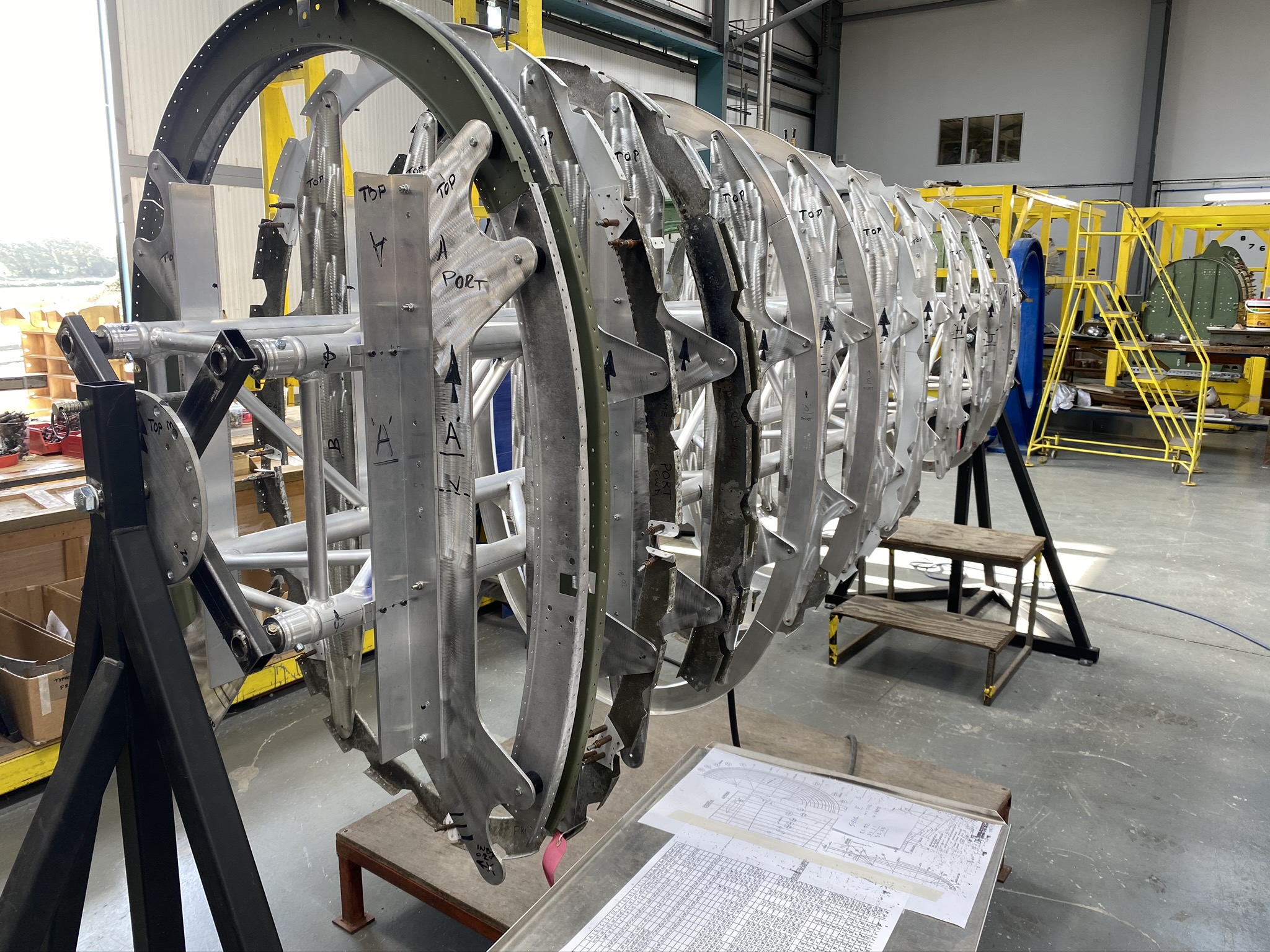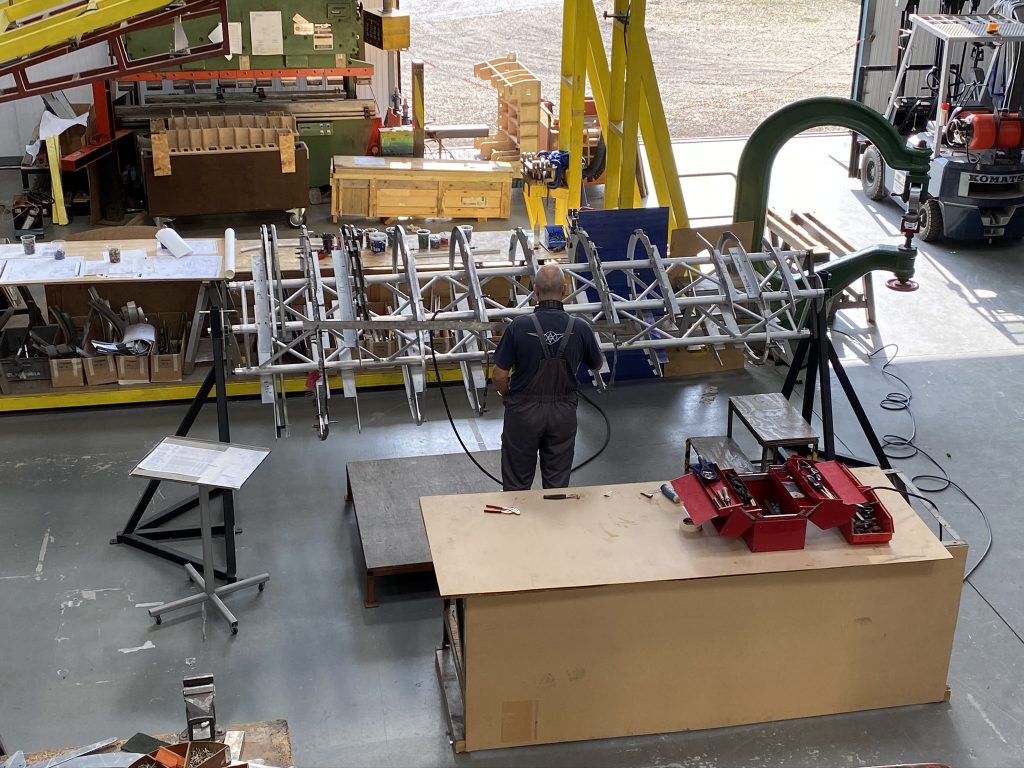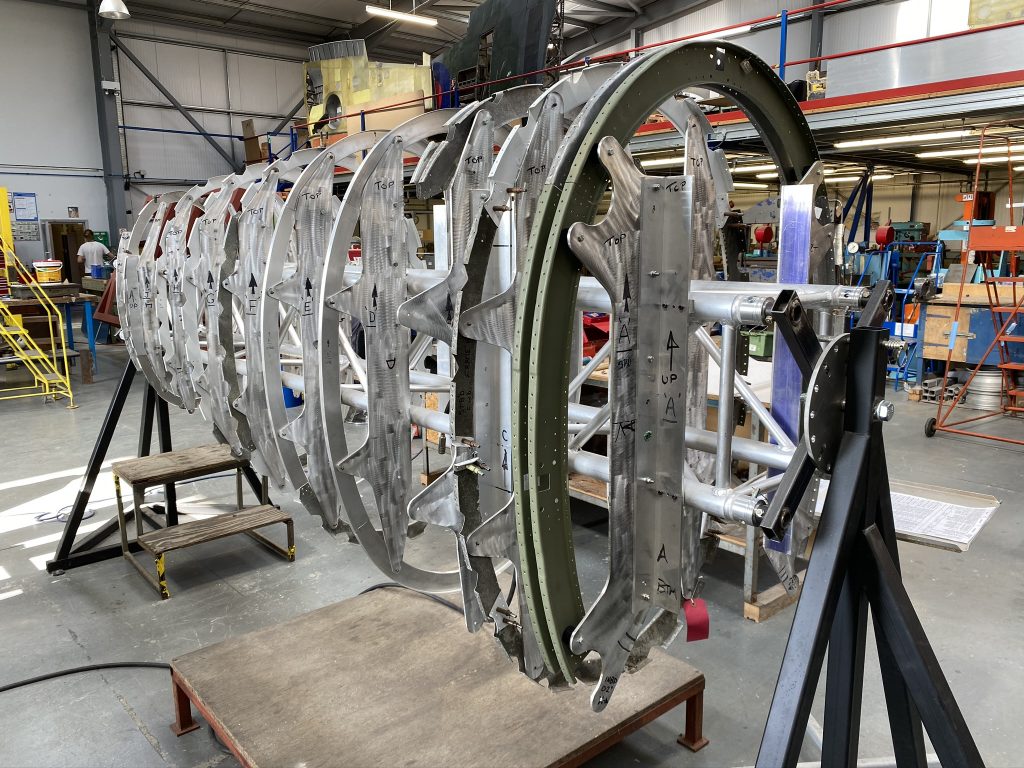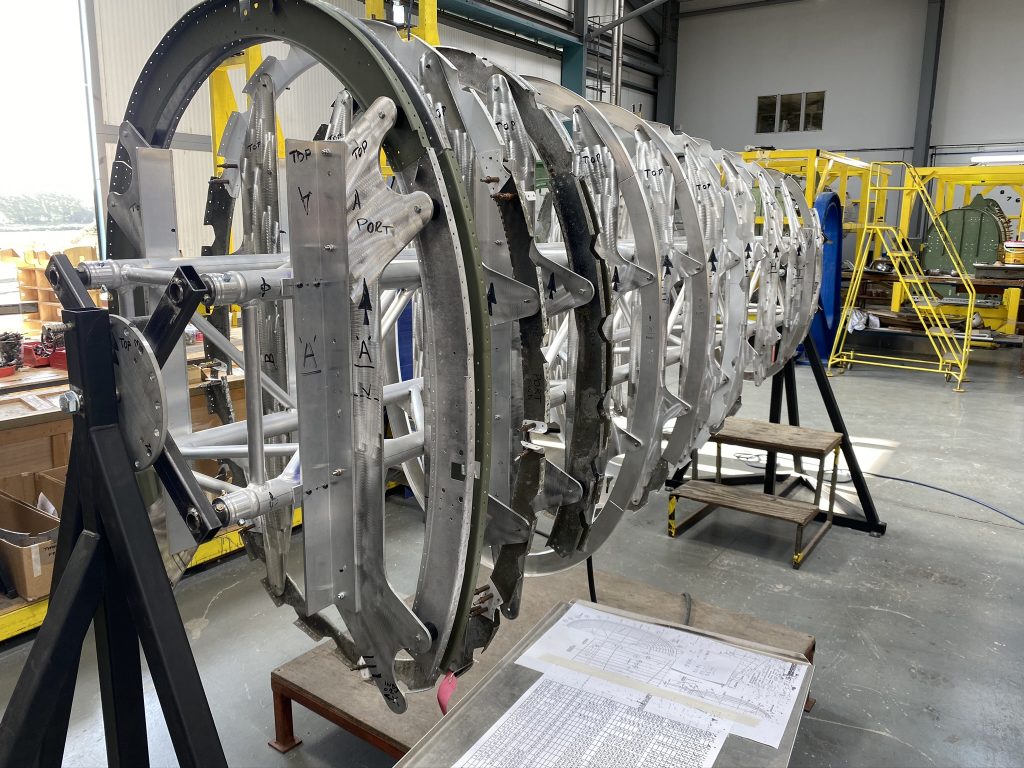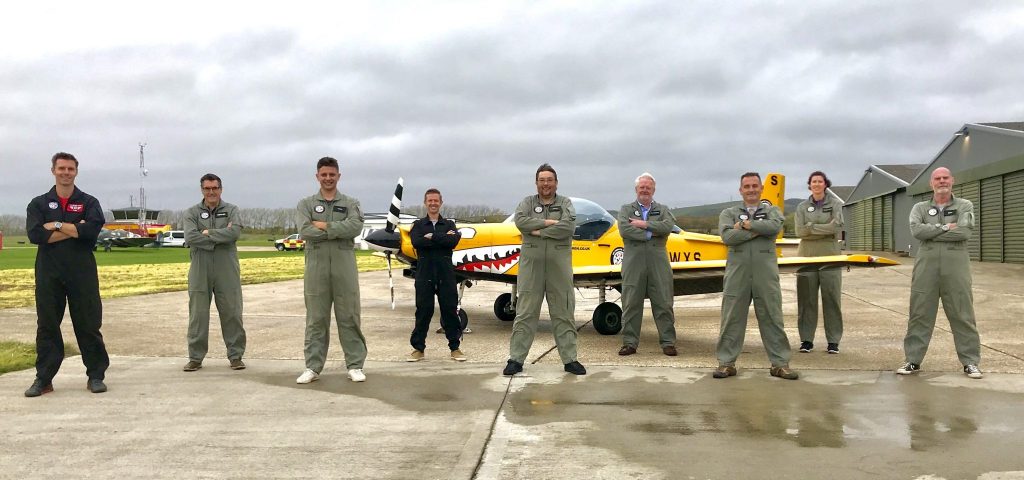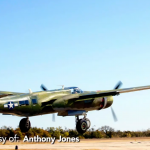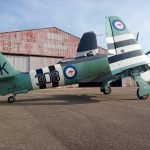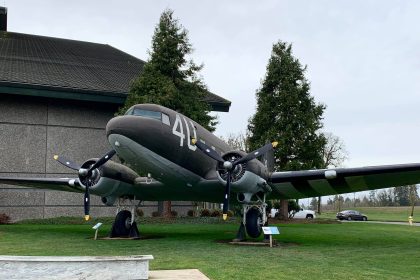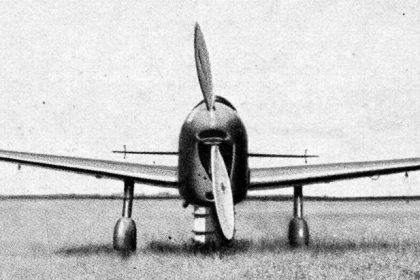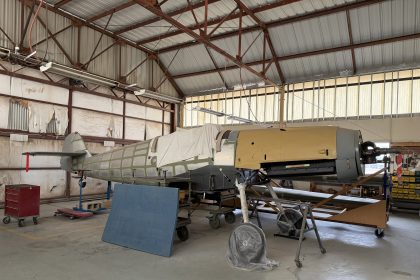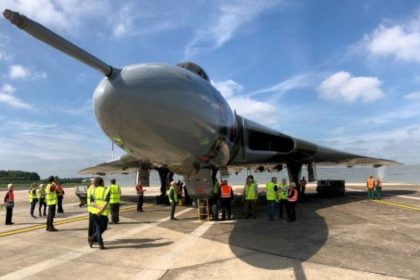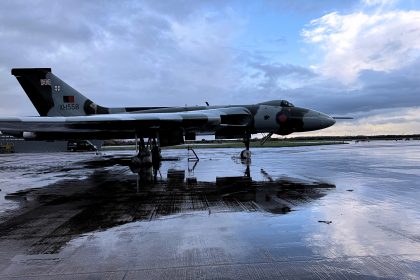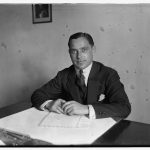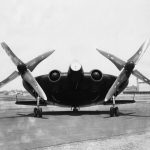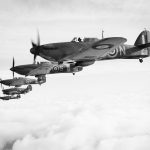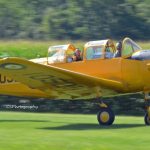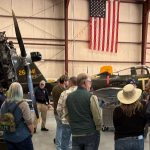The Hawker Typhoon Preservation Group (Registered UK Charity no.1167143) is overseeing the rebuild of RB396 with the intention of returning the aircraft to flight powered by a rare Napier Sabre engine – something that has not been seen or heard, for nearly 70 years. We have published several reports about the Hawker Typhoon Preservation Group (HERE) over the past couple of years, and their valiant efforts to resurrect Hawker Typhoon Mk.IB RB396. At their direction, the world-class restoration shop, Airframe Assemblies, has been making incredible progress with the restoration of this important combat veteran at their facility on the Isle of Wight just off the south coast of England.
Warbird Digest has just received the Fall, 2020 report from Sam Worthington-Leese, Director of the Hawker Typhoon Preservation Group. We thought our readers would be very interested to see how the project has progressed since our last article on this important project. So without further ado, here it goes!
Autumn Progress Update and AGM
The end of October is a special time for the project. The last full weekend of the month is the anniversary of the official public launch, in 2016, at the Boultbee Flight Academy Hangar, Goodwood. Why there? Simple, the project didn’t have its own base at that time. It had no money in the bank, no Supporters’ Club and no team, but huge aspirations.
Fast forward four years and only one of the original three founding members of the Hawker Typhoon Preservation Group (HTPG) remains, such is the strain of this project. But, he is now surrounded by a dedicated all volunteer team, the project has its own base, is closing in on the first £1million raised and most importantly, the rebuild is underway. COVID-19 has not been kind to the charity sector this year, however, due to the hard work by the team and contributions from supporters of the project, the rebuild of Hawker Typhoon RB396 has not only recommenced, but accelerated.
At the recent AGM, held on the launch anniversary weekend, the team were given information on the incredibly strong financial performance of the charity – £320,000 raised or pledged in the seven months from 1st April 2020, despite the COVID-19 pandemic. There was also an update from each team leader on their respective area of responsibility and the progress on the rear fuselage section seen over the last few months. The three trustees were fully satisfied that the project, under the leadership of the Director, who has held the reins and remained consistent through this turbulent summer, is actively working toward and achieving the stated aims of the charity. They commented that the charity has never been so stable, nor has it ever had such a successful period.
During July, August and September work continued on the frames in the form of repairs and manufacturing of new replacement components where the originals could not be reused. Work also continued on the jig so that when space became available it could be leveled and bolted in position ready for reassembly to begin at the beginning of October. To coincide with the reassembly, a time-lapse camera was installed so that the work taking place on the jig, up to completion, can be recorded and used to promote the project.
Amazing progress has been made by Airframe Assemblies during October with the jig that rotates to allow access to all parts of the frame, being fully utilised. All the original single frame segments, apart from frame J/K, along with the new build pieces have been cut in, drilled off and primed and installed on the jig. The front of the jig has also been extended to allow work forward of frame to commence. Fixtures such as the footsteps and hand holds that sit forward of frame A and were missing from RB396’s fuselage are being constructed on the bench. Patterns have been taken from the projects Tempest fuselage, drawings and photographs.
The twin walled frames A and C are waiting for various parts to be manufactured before they can be assembled. The aluminum fittings within frame A, that attach the tubular frame of the center fuselage are currently undergoing testing. Out of the three sets that we have available it is hoped that one good set can be signed off for reuse. Orders have been placed for the tooling and stretch forming of frame K which forms one half of the joint with the tail. Delivery is awaited from the US of the radius extrusions that will be used for frame K and the 16’ long aluminum sheets that will be used for the fuselage skins. As standard only 12’ sheets are available so these 16’ lengths had to be specially sourced.
This fantastic progress has only been possible thanks to the hard work by the team and the continued contributions from those who support the project, in particular members of the Platinum Club and the Supporters’ Club. The Platinum Club was launched on 1st April 2020, the 75th anniversary of RB396’s final flight and subsequent forced landing. Contributions from the Platinum Club, and its members, exceed £120,000 raised since then, with a further £130,000 due in future contributions and Gift Aid over the coming years. It is thanks largely to them, that the rebuild has been able to recommence and reach the point that it is today.
Looking towards the future and the completed aircraft, one of the main rewards for joining the Platinum Club is the receipt of a namespace on the completed aircraft. That space can be reserved for the member, or, it can be nominated for a veteran – whether they are a relative or not. Platinum Club members will also receive a complimentary VIP invite to the official first flight event along with a host of other benefits. Contributions can be made monthly, quarterly, annually, or in full, providing an option for all who wish to see RB396 take to the skies once again. Most importantly, once all of the limited number of spaces within the Platinum Club are filled, the project will be fully funded and able to accurately plan and budget for all the remaining works, moving the rebuild along at a pace not yet seen.
Critical to the project is the team, the core team of fewer than ten people who are working incredibly hard day in, day out, managing the project and moving it forward. Without them, the achievements to date would not have been possible. Such is the nature of the project that some team members have never even met, yet are required to work together closely on projects well out of all of their comfort zones. The project Director identified a need to not only provide some core training for these team members, but also to build the team, bond, and forge the strong working relationship and trust that is essential for the further success and development of the team, and the project. Prior to the AGM, this training and team building took place, again at Goodwood, an airfield with strong links to RB396 when the aircraft was delivered there by Polish ATA pilot Anna Leska, in November 1944.
The training was provided by the Ultimate High Academy, who are specialists in Flight Safety, but also management, leadership and high-performance teams training. Indeed, the Chief Pilot is ex-Red Arrows, and the CEO a former leader of the Empire Test Pilots’ School. The morning focused around the notion that Communication + Trust = Teamwork. The team analyzed several elements important to the function of a strong team, developing ideas, theories and parallels applicable to the project. The morning culminated with a demonstration of formation flight to further reinforce the notions studied beforehand, and a simulated air combat session to gain a small degree of appreciation of the challenges faced by the young Typhoon pilots during WWII. This morning further highlights the great level of importance placed on the team by the Director, and the Trustees. Furthermore, it highlights their commitment to nurturing and developing the team; because without the team performing efficiently as one, there is no project.
The Hawker Typhoon Preservation Group is always looking for new members. Prerequisites are that you will be a member of the RB396 Supporters’ Club on any tier and a passion to work hard. No prior experience is necessary. The project is, at its core, a fundraising organization, with fundraising the main task that assistance is required with. But that comes in many forms, primarily research-based. Going forward, there may be “hands-on” opportunities with the physical rebuild, but they will first and foremost be offered to those who have helped the project to get there – the fundraisers. If you want to be a part of this truly incredible project, helping to shape its future direction, then if you have not already done so join the Supporters’ Club, then get in touch!
For more information and to keep up to date with the project, visit the official website at www.hawkertyphoon.com. The Hawker Typhoon Preservation Group also has a strong social media presence – visit them at Facebook , Twitter and YouTube.







